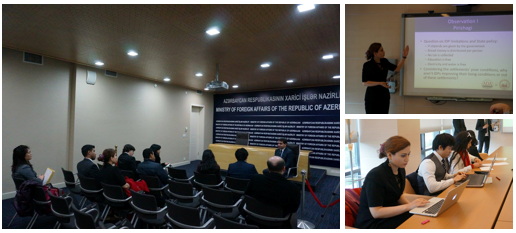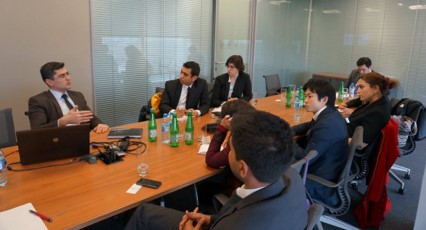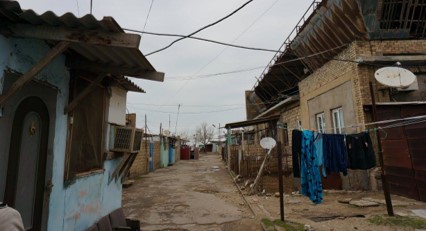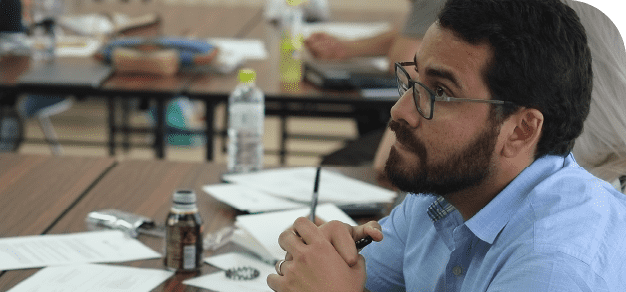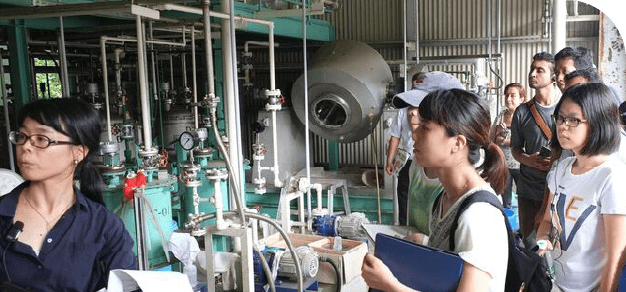GRM Students’ Reports
GRM履修生活動レポート
GRM Program Completion Report
Graduate School of Global Studies Elham HOSNIEH
2021/07/26
My enthusiasm for conducting interdisciplinary research was the primary reason that led me to make the decision of joining the GRM program in 2014. Back then, I was a master student in IT engineering with a strong interest in humanities. Thanks to the interdisciplinary and multifaceted approach of the GRM program, I was able to change my major from IT engineering to Global Studies at the PhD level in 2016. Participating in the program helped me to maintain my association with science and engineering perspective while making progress and evolve as a student and researcher of the field of the Global Studies.
Being a GRM student has contributed to my education in general and my PhD thesis in particular, in two main ways: first, through the lectures, seminars, and group activities and second, through conducting individual academic projects that GRM program supported and facilitated in the form of courses such as internship and field research courses.
GRM group activities have opened a new window for me to see and better understand the multi-dimensional nature of the real-world challenges of sustainable development. Course design and the interactive learning, site visits, group discussions, all, and all provided me with new conceptual tools and perspective to look at the same problem from different angles.
For instance, it was through taking the “on-site practice II” course in the Philippines that I understood how tackling natural disasters are closely associated not only with an effective technical knowledge and theory of recovery and rehabilitation, but also with the specific demands of a disaster-suffered community and issues of mismanagement and corruption at many different levels. Moreover, given all these complexities, a good enough solution should be a resilient, sustainable, and long term, and not a superficial or cursory treatment of the issues. Such deep and multi-disciplinary understanding of the real-world problems and constrains would not have been possible without the field observations, meeting the local government and the specialists of the field and, finally exchanging expertise and perspectives as group work with the other students from diverse academic backgrounds.
Similarly, through another on-site practice in Azerbaijan, we investigated political, economic, and transnational policies of the country through the Nagorno-Karabakh conflict, which highlighted further the issues of internally dislocated people and challenges of the foreign policy under the threat of potential future conflicts with the neighboring countries.
Furthermore, through the courses conducted as introduction to various engineering majors, I learned conceptually stimulating, yet practically beneficial information from environment science, civil engineering, and international law.
To briefly touch upon such courses, I briefly mention about the two of them. Through taking the class “American Foreign Policy Through Constitutional Perspectives: Theories and Cases" I could acquire some background information about the role and function of the U.S. Constitution in formulating policies that concern political, economic, security, humanitarian, and other interests of the United States in various regions of the world. As a researcher of Middle East, grasping such perspective has been beneficial for me to get some insight into the nature and process of intervention of the U.S. in the region.
Moreover, in the course offered under the title of “GRM Earth Planetary Environment Science”, I could get closer to developing a scientific perspective to the critical environmental issues such as climate change, Global Warming and other natural hazards such as Earthquakes and Tsunami. Such courses could also help me to think in comparative terms about the treatment of the same problems in Japan and my country Iran. As the final assignment of that class, I wrote about the issues of water management and environmental hazards of Lake Urmia in Iran, as well as the association of the problem with the concerns of the civil society in that region.
In my individual activities, throughout the field research courses, I had a chance to travel to Iran to conduct fieldwork related to my PhD thesis, and once to Europe as an exchange student at EHESS in Paris.
As my PhD research explores the literature field of Iran and its relationship with religious tradition, during my fieldwork in Iran, I started to participate in different literary gatherings, events to grasp the general atmosphere of the field with regard to my subject of inquiry. At the second level, I got to know experts in the field, including university professors, several PhD students, writers and one editor in chief of a publication house. The interviews that I conducted with the experts, together with my own observations from the field, helped me to choose the main figure that I chose to focus on: Hushang Golshiri (1937-2000) as I could see that he is still discussed and influential in the field. Consequently, I could also choose the period that I wanted to focus on: 1990s, and the turning points that were the most important for my analysis of the writer’s contribution: the Iranian 1979 revolution, and reform movement (1997-2004).
In my field research in Europe, I participated in the important academic conference of WOCMES, in Spain, where I presented my work, and met with several scholars of my field, including Professor Taher Ahmad or Professor Pederson, both of which are experts of the field and have written about Iranian modern literature.
In Paris, I discussed with some scholars that had the same theoretical approach as me, including Dr. Clemence Scalbert-Yucel. She gave me a list of works including her own papers written on Pierre Bourdieu’s field approach that I used for writing my thesis. Moreover, she introduced me to two more scholars who have done a similar work as me in Turkey, whom I interviewed later.
All these experiences, later, helped me in completing my doctoral dissertation in the graduate school of Global Studies. The strongest linkage that I see between the knowledge and experiences I gained from the GRM program, and my doctoral dissertation might be found in the multifaceted approach of the program to a research problem or issue. I wrote my thesis with a similar view. My thesis titled: “Hushang Golshiri and Iranian Literature Field after 1979: Secular Engagements with a Transcendental Heritage,” conceptually bridges sociology, religious/secularism studies, and literary studies. Based on such interdisciplinary approach, I have divided my thesis into two parts: the first part looks into the Modern Iranian literature field and its development since the 20th century, aiming to discuss the dynamics of the literature field, mostly regarding religion and tradition in the post-revolution era, while the second part looked more closely into the works and discourse of Hushang Golshiri.
Furthermore, the insist of the GRM program fieldwork, and site-visit in order to get first-hand information of the particularities of a region, and specific characteristics of how the problem unfolds itself in the given time, place and environment was inspiring for me to locate carefully the concepts such as “secularism” in the context of Iranian society and literature field. In fact, my PhD thesis places itself within the study of Iranian literature in its alternative modernization/secularization. The thesis argues that after the revolution of 1979 in Iran, discourse of literary modernity developed in a way to provide a more active involvement with religion and tradition by a group of so-called “secular writers”. This involvement has led to a kind of a “reconstruction” of the relationship between modern Iranian literature and religion, in pluralistic, novel, and seemingly secular ways.
To conclude, GRM course contributed to my academic worldview in two main ways: first, the need to look into the problem as a multifaceted, complex construct, and second, the necessity to look for a context-specific formulation of the potential answers
